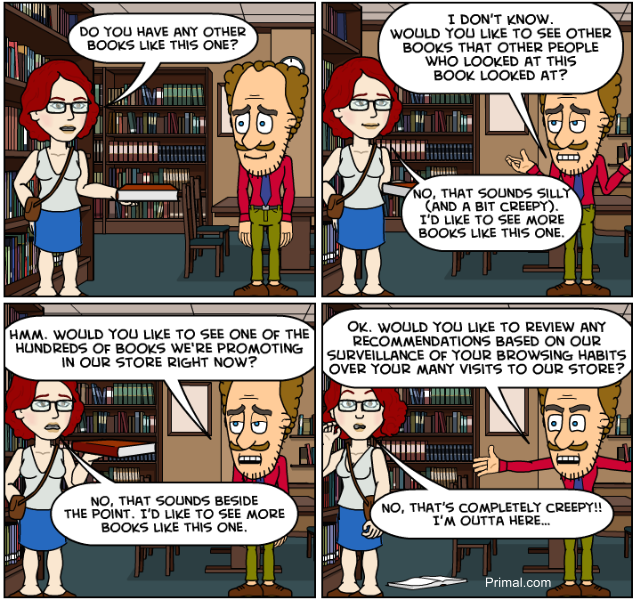
Why Context Is King For Content Recommenders Like Taboola and Outbrain
Content recommenders too often treat us like cartoon characters. We don’t have this experience when we interact with real people. Why is there such a gap between our expectations for content discovery and the reality out in the wild?
In a word, the problem distills to context. The recommender in my story doesn’t have a clue about the context for the current request: Do you have any other books like this one?
Context is the central challenge. And perhaps surprisingly, what’s impeding our progress isn’t a lack of technical solutions, but rather an effort to throw everything but the kitchen sink at the problem.
Recommendation systems fail. A lot.
The unfortunate thing about recommenders is that no one really knows whether they work, at least not on the technical merits. Here’s the conclusion presented at the ACM Recommender Systems Conference, 2013.
The review of 176 publications has shown that no consensus exists on how to evaluate and compare research paper recommender approaches. This leads to the unsatisfying situation that despite the many evaluations, the individual strengths and weaknesses of the proposed approaches remain largely unknown.
Of course, in the absence of academic rigour, we can always fall back to the court of public opinion.
What do consumers think? Erin Griffith captures it succinctly:
Outbrain and Taboola’s founders set out to make the Internet a better place. So why does everyone seem to hate their products?
Recommenders have drawn serious criticism, with complaints ranging from “spam” to questions of ethical misconduct. (1)(2)
So what do you think? Here are two examples, drawn from Outbrain and Taboola.
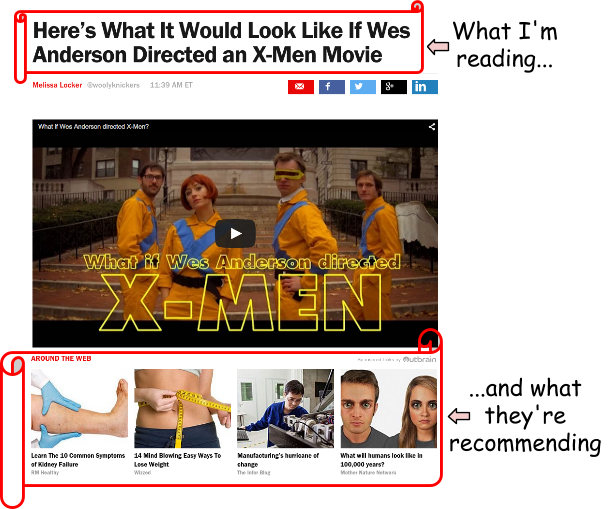
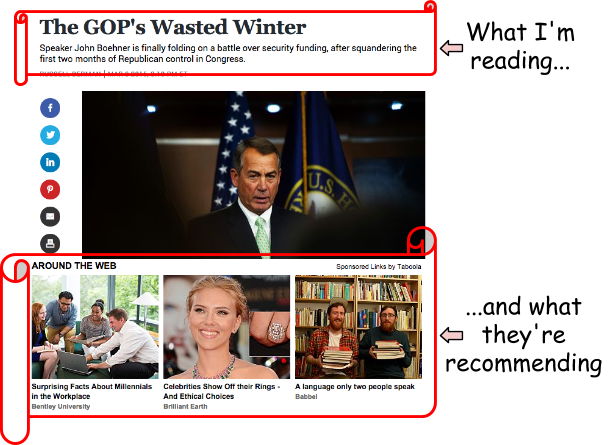
If each article represents the book you’re holding, why are the recommendations promoting such widely divergent subject matter?
Is this just a business model problem?
Taboola and Outbrain are being paid to promote content, so their inventory of content to recommend is limited by their business model.
This explanation, while a mitigating factor, doesn’t hold up to scrutiny. Both companies use a cost-per-click (CPC) model. They want their promoted content to be as relevant as possible to our interests, to maximize their revenue.
How are they doing? Audrey Bloemer and Andrew Meyer recently published an excellent report on the productivity of content distribution networks like Taboola and Outbrain, reporting click-through rates ranging from 0.027% to 0.125%. In other words, under their best-case scenario, people were clicking on these recommendations once in 1000 opportunities.
The problem isn’t the business model, the problem is that the recommendations are largely irrelevant in the context in which they’re presented. The consumer complaints are justified.
The only technical detail you need to understand about recommenders
When technologists describe their recommendation systems, they’ll often focus on the technical details: collaborative filtering, content filtering, domain-specific knowledge-bases, explicit, implicit and profile data, rule-based and intent-based systems, in every conceivable combination.
We need to set aside the technical jargon to make real progress. The only technical detail you need to know is this:
Recommendations are based on some underlying knowledge, a knowledge representation.
What is the underlying knowledge that powers the recommendation system and how was it derived? This may seem abstract on the surface, but it gets to the heart of the challenge for recommenders. For example:
Recommendations based on the past behaviours of people…
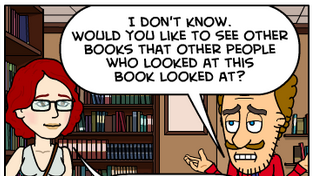
Recommendations based on attributes of the content…
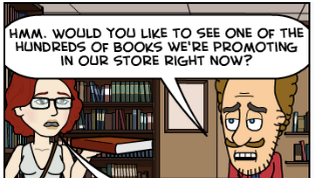
Recommendations based on existing knowledge of the user or the usage scenario…
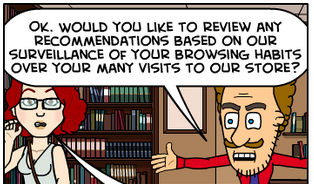
As the story above makes clear, none of these approaches gets down to the heart of the problem.
The woman in my story is focusing on a specific interest, at a specific moment in time. The man hasn’t any knowledge of the book she’s holding or the ability to relate that knowledge to the other books that are available.
And so it fails.
I don’t think context means what you think it means…
Clearly, content discovery is a problem worth chasing. Taboola recently closed a $117-million financing round; Outbrain is considering an IPO that would value the company at $1-billion. (1) (2)
Further, as reported by Mathew Ingram, Taboola understands that “context” is key:
The secret is to create “dotted lines” between what the platform knows about a user and what they might like, [Taboola CEO, Adam Singolda] says — so Taboola looks at what device he or she is using, whether it’s a tablet or a desktop browser, what time of day it is, where they came from (search or social or a direct link) and then does its best to try and figure out what to show them that will get them to click.
If context is truly key, what does the device, the time of day, or the referrer have to do with my interests? These are the building blocks of click-bait knowledge (“figure out what to show them that will get them to click”), not personalized content discovery.
But wait, there’s more. Big data is the missing ingredient. Singolda elaborates:
If you have the scale and you have good technology, you can create very good recommendations — and we have indexed hundreds of millions of articles and videos and slideshows.
Click-bait knowledge at scale. It begs the question, Taboola: Do you have any other books like this one?
